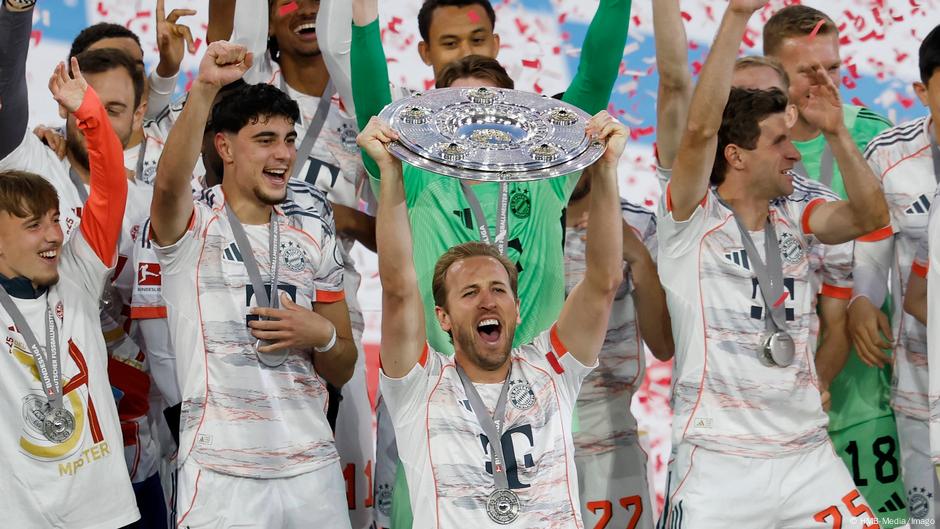
New Partnership with Emirates
Bayern Munich, one of the most successful football clubs in Europe, has recently entered into a partnership with Emirates, the UAE-owned airline. This move comes as part of a broader strategy to secure financial stability and enhance their global brand presence. The agreement is similar to previous deals the club has had with entities like Visit Rwanda, but it lacks the inclusion of a football academy in the UAE.
The deal was announced on Wednesday and includes pitchside advertising as well as joint activations on both companies' social and digital platforms. Unlike the previous arrangement with Rwanda, there is no mention of establishing a football academy in the UAE. This decision has sparked some debate among fans and critics alike.
Financial Benefits and Criticisms
Emirates, which reportedly missed out on Bayern's shirt sponsorship, has a long history of involvement in sports. The airline has partnerships with several prominent football clubs, including Arsenal, Real Madrid, and Lyon. Additionally, they sponsor the English FA Cup and have deals in various other sports. They were also a former shirt sponsor for Hamburg in the Bundesliga.
Michael Ott, a German lawyer who led fan protests against the Qatar Airways sponsorship, expressed disappointment that the club is entering another partnership with an entity from a country with questionable human rights records. He criticized the move, stating that it is deceptive and raises concerns about the treatment of migrant workers in the UAE.
Ott pointed out that the previous deal with Qatar Airways ended not due to a change in mindset within Bayern, but because Qatar did not want to continue. He feels ashamed for Bayern, highlighting the potential worse conditions for migrant workers in the UAE compared to those in Qatar.
Human Rights Concerns
A 2024 report by Amnesty International highlighted the UAE's criminalization of freedom of expression and peaceful assembly. It also noted the country's strong economic ties with Israel amid the conflict in Gaza and the use of prolonged solitary confinement against prisoners in mass trials of Emirati dissidents.
Despite these concerns, Bayern's deputy chairman, Michael Diederich, emphasized the financial benefits of the deal, which is estimated to be worth €5 million ($5.8 million) annually. This financial security is crucial for the club as they recently spent €70 million on signing Colombian forward Luis Diaz from Liverpool.
Partnerships and Ethical Considerations
Bayern Munich's partnership with Emirates places them in the "platinum" tier, just below main partners such as Adidas, Allianz, Audi, and Deutsche Telekom. Other platinum-tier partners include Betano, Bitpanda, and Visit Rwanda. This tier reflects the club's strategic approach to securing financial support while maintaining a global brand presence.
However, the club's partnerships have not been without controversy. In February, DR Congo's Foreign Minister Thérèse Kayikwamba Wagner wrote to clubs, calling for an end to "blood-stained sponsorship deals" with Rwanda. This criticism came amid ongoing conflicts between the two countries.
Calls for Ethical Stance
Anaise Kanimba, a Rwandan human rights advocate and daughter of Paul Rusesabagina, who was featured in the film Hotel Rwanda, voiced concerns about the club's ethical stance. She argued that if Bayern stands for peace and human rights, they should support the people of the Democratic Republic of the Congo (DRC) rather than Rwanda.
Kanimba questioned the club's commitment to its values, asking if they would want to be associated with a country that invades another. She urged Bayern to take a clear stance on its values and avoid double standards.
Broader Implications
The increasing influence of countries with questionable human rights records on football is a growing concern. The UAE owns Manchester City, while Qatar Airways sponsors the Champions League, and the Qatari ruling family owns Paris Saint-Germain. Germany has generally maintained a firm stance on this issue, but Bayern Munich's recent actions suggest a shift in approach.
As the club continues to navigate the complex landscape of sports sponsorships, the balance between financial benefits and ethical considerations remains a critical challenge.
